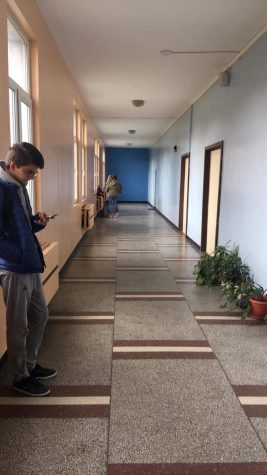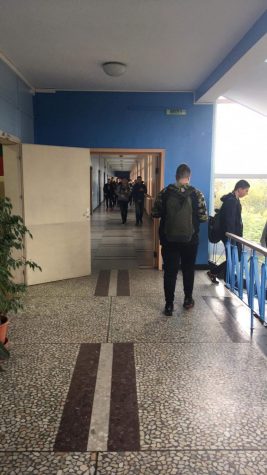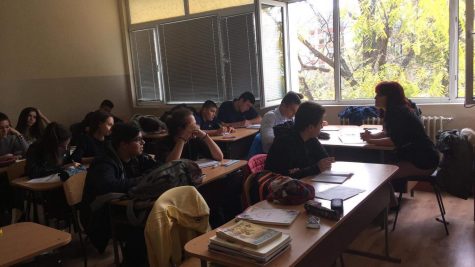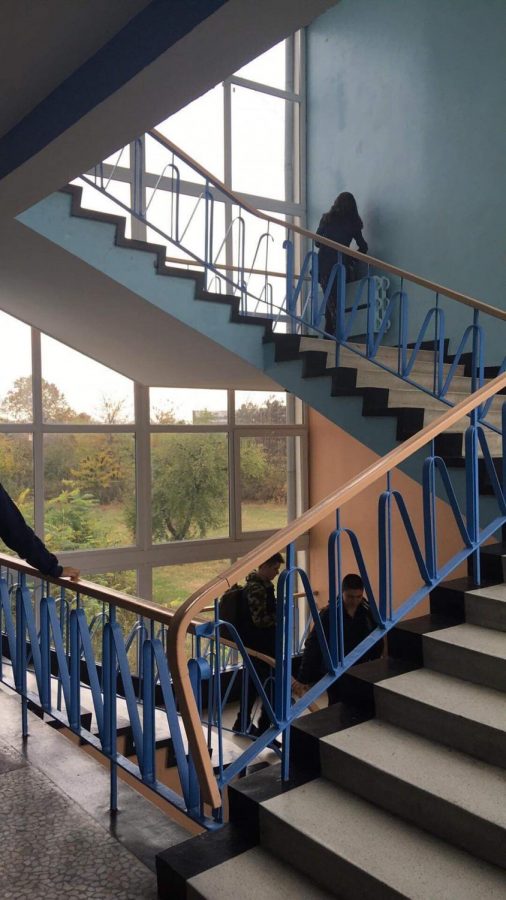The Differences Between High School in Bulgaria and the United States
November 1, 2018
High school could be everyone’s nightmare during their time spent there and everyone’s best years of life after they leave.
But have you ever thought that high school is different in almost every other country? There are different cultures and values within schools, as well as the fact that students are different all around the world.
In Bulgaria, my home country, far away in East Europe, high school is much different, for example, high school in Bulgaria begins in eighth grade and runs through grade 12.
In Bulgaria, there are no elective courses, but we have different types of high schools: Language High Schools, Arts/Drama High Schools, Math/ Math and Science High Schools, Technical High Schools, Commercial/Financial High School, and so on.
So, after you finish seventh grade, based on your grades and exams, you can choose your school. Some high schools require certain grades in order to accept you.
After students complete 12 grade, some students will start working immediately. Others will go on to University. Depending on your chosen high school, sometimes you can even start immediately working after graduating from high school on your specialty.
However, when you end up in a specific high school, everyone studies the same subjects.
For example, I am in a Language High School, what language you study is based on your grades. For example, German is the most popular, and you need to have higher grades to be accepted into this language.
I had good grades, so I probably could have taken any language, but I chose to study Italian. In fact, I had about 22 hours of Italian a week.
In the second year, I got some other courses: Biology, Physics, Chemistry, History, Geography, Psychology, maybe a second language (depending on your school), and Computer Sciences.
Depending on the program we have the classes different times during the week-for example, Math class-three times a week, Italian-eight times a week. Most of them I study in Bulgarian, but I have History in Italian.
Teaching in Bulgaria is also really different. Teachers usually explain all of the new material, everyone takes notes, and we have homework almost every day. Basically, most teachers lecture the entire period.
Usually in the beginning of every period we have an oral pop-quiz. The way that it works is a teacher chooses a student they want to ‘examine’ (they often do this randomly) and the student has to explain the new material. Then the teacher gives them a grade.
This is actually very beneficial because you know you have to pay attention and learn the material

, because you will probably be tested the next day in front of your class.
Here, in the U.S., school work/teaching is more involved like working in groups. What impressed me was that most of the time students are supposed to find the information by themselves and apply it in an exercise or group activity. The process looks far more independent and responsible, but not every student at the age of 15 may be able to concentrate enough to do that on their own and understand the new material.
The length of classes is different and it depends on each school, but classes are at least 40 minutes. In my school they are 45 minutes.
The school day length is really different in every school. Some schools have double shifts-some students go to school in the morning and others go in the afternoon. The reason usually for double shifts is because the school is not big enough to have all of the students at once.
For my school it depends on how many periods we have each day. On Mondays and Fridays we have six periods. We start at 8 a.m. and we finish at 1:35 p.m. The rest of the week we finish at 2:30 p.m.
Studying so many subjects can sometimes be hard and can take a lot of your time. For me, it is totally worth it because you broaden your horizons so much. It is worth it because for those years in high school, you end up with so much knowledge that you can feel ready for life in the future.
Another thing that is completely different in Bulgaria is that you are with the same people every class period. This is great because you create one community that is always united together. It is easier to make friends that will be by your side until you graduate.
That is why I was so afraid when I started studying here. Every period I am with different people, but I actually enjoy it, because this way you meet many people and make more friends.
One thing that I love about American high schools is the variety of clubs they offer. School clubs give you the opportunity to meet people with the same interests as yours. They also give you experience and knowledge about your  hobbies and interests.
hobbies and interests.
Where I come from, there are clubs in school, but they are mostly connected with sports and you are in them if you are on the school’s sports team.
Extra activities in Bulgaria are not usually connected with school. If students want to get involved in volunteering, in learning another language, or in photography, for example, then they have to find those things themselves and do them after school where they meet new people and enjoy their hobbies.
It is not impossible, you just learn how to be independent and to find your interests alone. Clubs are not affiliated with school at all, so they are organized in the community. Some require payment to be involved, similar to if an American took a Karate or dance class.
I feel grateful that I have the opportunity to experience a different culture and make friends for a lifetime with a different culture. Because of my experiences, my knowledge would be enriched and this is invaluable.
As once my Arts teacher from Bulgaria said to me: ‘A person sees only what he knows.’


